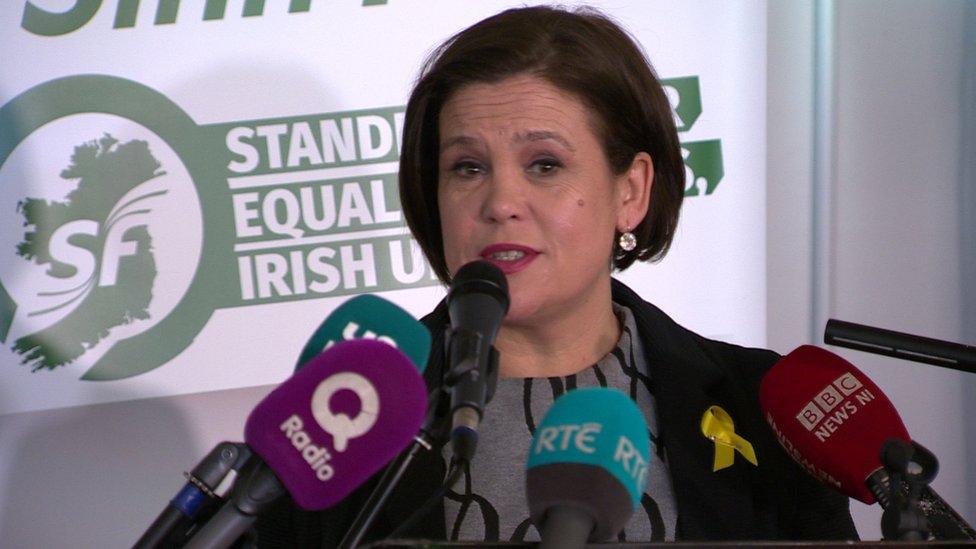Opinion split over Sinn Féin use of 'Londonderry'
- Published
Sinn Féin leader Mary-Lou McDonald used the word "Londonderry" in a video after a trip to the city
In politics, it is very often words that speak louder than actions and the past week in Northern Ireland has proved no exception.
Despite a deep-freeze in relations between unionists and nationalists since Stormont's power-sharing coalition collapsed last year, the phrases 'reaching out' and 'shared space' are never far away from the political conversations that do occur.
On Monday Sinn Féin president Mary-Lou McDonald appeared to break new ground in reaching out to unionists, when she used the word "Londonderry" in a video on social media, external after a trip to the city to meet Presbyterian minister Rev David Latimer, and members of his church.
Cue a tone of positive surprise from some, while sceptics raised their eyebrows as to possible motives behind the move.
'New Ireland'
Nevertheless, it is hard to imagine her predecessor Gerry Adams saying the L-word to refer to the city in the north west.
Since taking over as Sinn Féin leader in February, Mary-Lou McDonald has frequently used conciliatory phrases like "new Ireland" and called for "healing" between unionists and nationalists.
To some, it's a stark contrast to the Sinn Féin led for decades by Gerry Adams and Martin McGuinness.
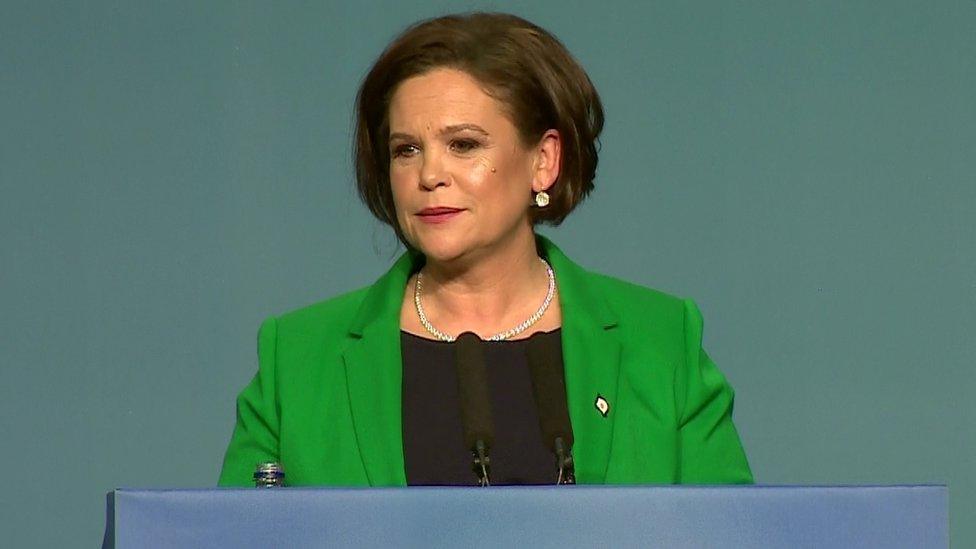
Is Sinn Féin changing its political strategy in an attempt to reach out to unionism in new ways to promote a united Ireland?
But are others seeing the words and tone coming from the new leader as a step too far?
Former republican prisoner Pádraic Mac Coitir tweeted, external to that effect, when he wrote "shame on anyone claiming to be a republican" for using the word Londonderry.

Why is the use of Londonderry or Derry so contentious?
The London prefix was added to Derry when the city was granted a Royal Charter by King James I in 1613.
It is very much a political issue with nationalists and republicans using the name Derry, while unionists use the name Londonderry.
During years of contention over the name, it received the name Stroke City from those who felt the row was futile.
There have been several failed attempts by Sinn Féin, external to get the name officially changed to Derry.

However, Catherine Nelson, a former Sinn Féin MLA who still works as an activist for the party, insisted Mary-Lou McDonald's approach is "nothing new".
She gave the example of the late former deputy first minister Martin McGuinness shaking hands with the Queen in 2012.
"I also said 'Northern Ireland' once in an interview and the journalist was taken aback, but it doesn't make me any less republican to say it," she added.
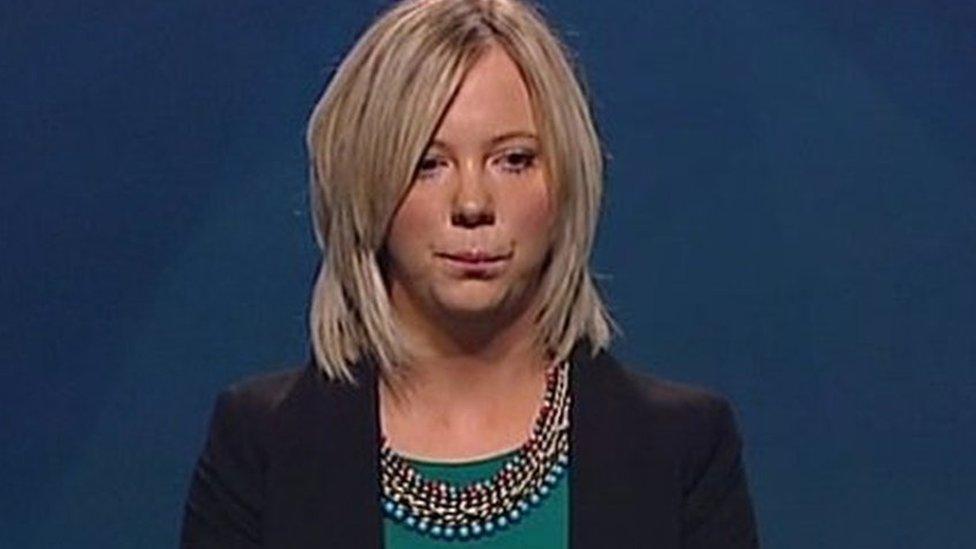
Former Sinn Féin MLA Catherine Nelson said her party had "outstretched themselves" with gestures and language to make unionists feel comfortable
"How do we make unionists feel welcome if we don't use some of the language that makes them feel comfortable?"
Ms Nelson also pointed to last week's Irish Senate by-election, where Sinn Féin said it would back Ian Marshall, a unionist former president of the Ulster Farmers' Union, as proof that her party had "outstretched themselves" to make unionists feel comfortable.
"If we're going to engage in unionist outreach, and I believe a united Ireland is a very real prospect, it has to encompass unionists," she said.
The DUP MP Gregory Campbell did not seem to buy that idea, and on Facebook said he thought Sinn Féin was pursuing a "charm offensive".
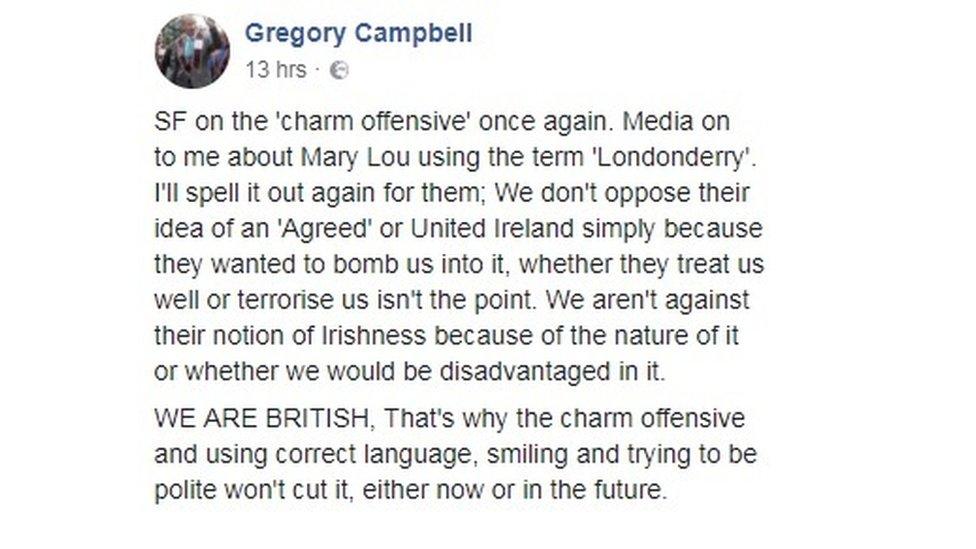
The DUP MP Gregory Campbell posted his view on Sinn Féin's perceived change of tone on his Facebook page
His view was backed by the former DUP MLA Nelson McCausland, who told the BBC's Talkback programme he believed Mary-Lou McDonald was "disingenuous" and there was "a lack of sincerity about this talk of unionist reconciliation and engagement".
But Wallace Thompson, a founding member of the DUP and former special adviser to Nigel Dodds, told BBC News NI he was "pleased" with Ms McDonald's words.
'Face value'
"People can attribute all sorts of motives to these things and they can be sceptical and suspicious, but from a personal point of view I welcomed it - it sent out the right sort of signals," he said.
He encouraged unionists to take Sinn Féin's words at face value and view them as genuine.
"If they're not genuine, that will manifest itself in due course," he added.
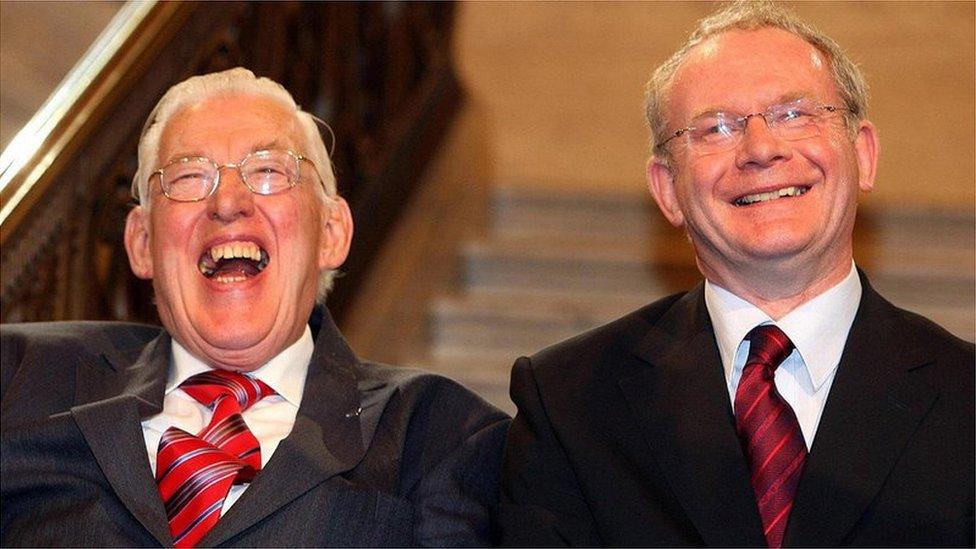
Ian Paisley and Martin McGuinness seemed the most unlikely of political partnerships, but put their differences aside to form a power-sharing government in 2007
"But in 2007, Ian Paisley and Martin McGuinness took each other at face value, the two parties under the leadership of those two took each other at face value and relationships were being built.
"We have to pick up those little gestures because the alternative is to shrug your shoulders and go back into your trench, where does that leave you then?"
Mr Thompson said he understood concerns other unionists had around trusting republicans, but that if words and gestures were not appreciated and reciprocated, Northern Ireland would only move backwards.
"Unionists can't become nationalists overnight and nationalists can't become unionists overnight, but that's not the point. It's about trying to genuinely just understand each other."
A Sinn Féin spokesperson said Martin McGuinness also said Londonderry many times, including when he introduced the Rev David Latimer at the Sinn Féin Ard Fhéis (conference) in Belfast in 2012.
When it comes to the smiles and snubs, the handshakes or the words - there are plenty of gestures that have been viewed as potential game-changing political moments in Northern Ireland.
But there may need to be many more gestures from both sides if there's to be any chance of rebuilding trust and understanding at Stormont - a scenario that seems further away than ever right now.
- Published10 February 2018
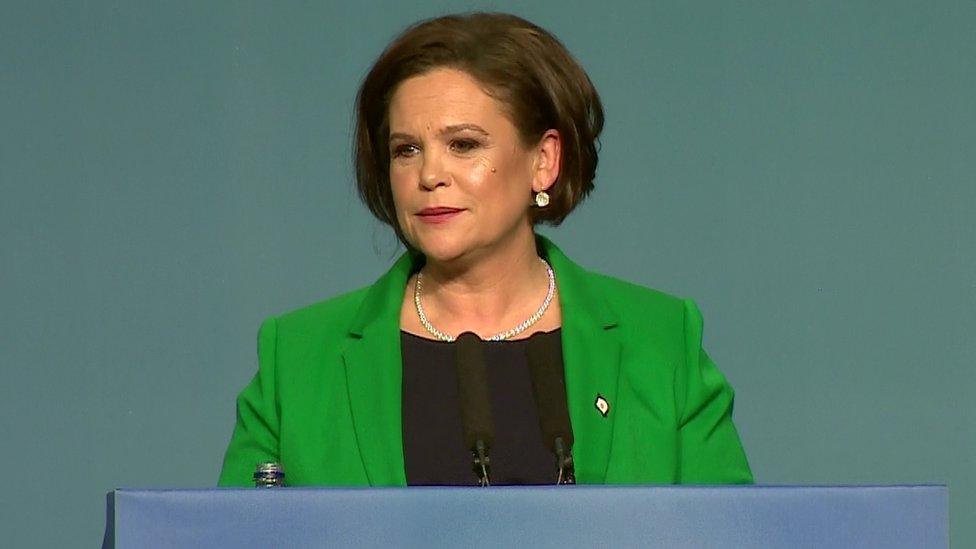
- Published10 February 2018
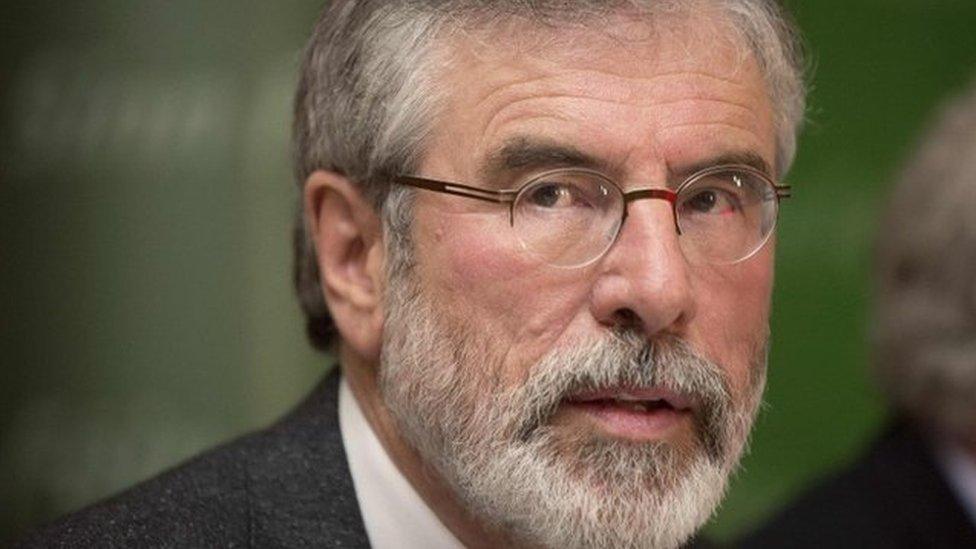
- Published20 January 2018
